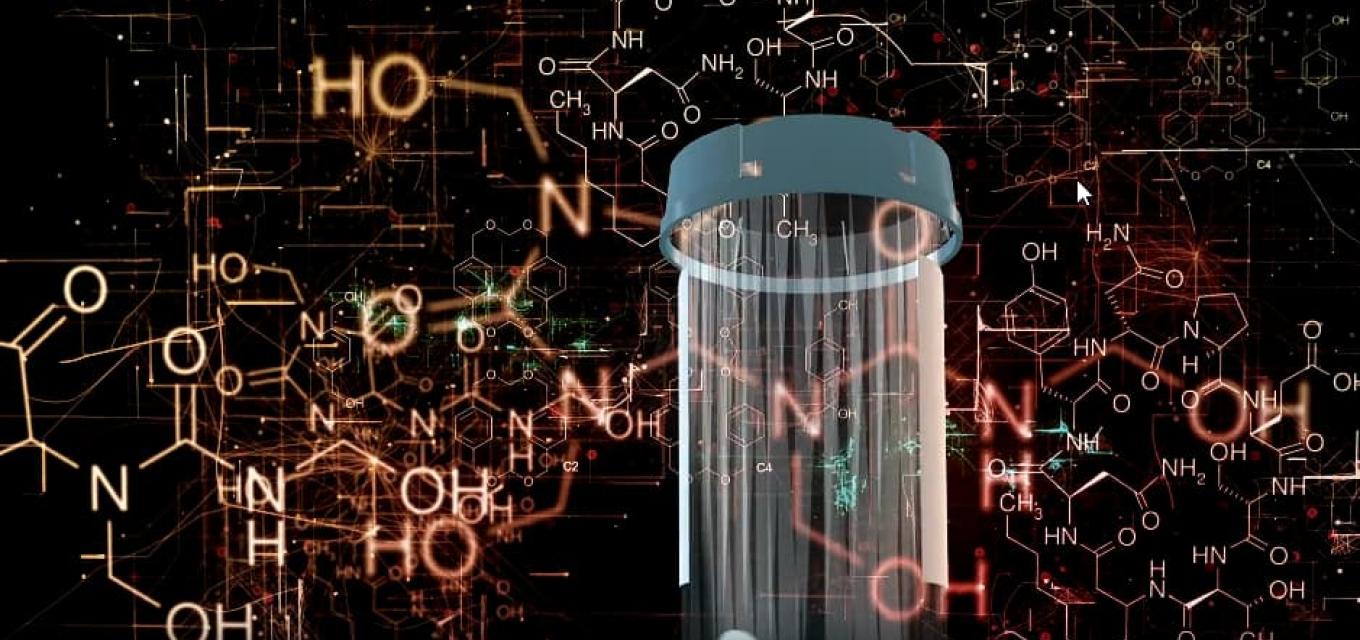Expediting Biosimilars to the Market with Electronic Laboratory Notebook, Signals Notebook
Expediting Biosimilars to the Market with Electronic Laboratory Notebook, Signals Notebook.
Biosimilars are biological products intended to reduce patient costs and offer increased accessibility in the treatment of various conditions. However, development faces many challenges that threaten to drive up costs and sink a project altogether – especially when solving them stretches out timelines.
Developing a biologic that is similar enough to the reference drug while meeting stringent regulatory requirements can be extremely complex. To do so means parsing and sharing large volumes of data based on multiple biological resources like:
- cell lines
- plasmids
- vectors
- and even non-biological resources
Multiple teams must be able to use the data in a secure, collaborative environment.
Accelerate Biosimilars and Innovation with Signals Notebook
Revvity Signals’ Signals Notebook is an intuitive electronic laboratory notebook that enables seamless collaboration and natively integrates ChemDraw and Spotfire software. It’s a critical enabler in the complete biosimilars research and development cycle. Our top-of-its-kind ELN is built to handle the extensive and rigorous research and documentation processes required for biosimilar development, while maintaining data integrity and security.
This robust SaaS-based solution is a centralized hub for the storage and retrieval of all biosimilar development data, guaranteeing both data unification and ease of access in an extremely secure cloud environment. It offers innovation and agility in managing the huge amount of data, helping optimize and manage the development cost – which in turn expedites time-to-market for the biosimilar.
An Electronic Laboratory Notebook that Rises to the Challenges of Large Amounts of Data
Biosimilar development requires intensive collaboration and the handling of large amounts of data. Our cloud-native electronic lab notebook, Signals Notebook, integrates ChemDraw and Spotfire software for seamless collaboration . Our cutting-edge technology is built to improve data management and integration, significantly enhancing the efficiency, accuracy, and compliance of a biosimilar workflow.
Ultimately, this makes the process time cost-effective and efficient, leading to higher-quality products that reach the market faster – a major competitive edge for companies.
Signals Notebook has several significant benefits as an intuitive electronic laboratory notebook, fundamentally transforming management of whole processes:
Streamlined Documentation and Searchability:
Biosimilar development involves large amounts of data and logistics challenges like the establishment and scaling up of stable cell lines, as well as carrying out downstream processing and purification. This becomes nearly impossible with paper; traditional notebooks can be cumbersome, making it difficult to organize, search, and retrieve specific data when needed.
Signals Notebook allows users to tag, categorize, and link data, making it easily searchable and retrievable. This feature saves valuable time during critical stages of biosimilar development, such as when compiling data for regulatory submissions or during internal reviews.
Increased Efficiency and Productivity:
By digitizing the laboratory workflow process, our ELN, Signals Notebook, reduces the time spent on manual data entry, transcription errors, and physical storage issues. This increased efficiency allows researchers to focus more on core activities like experimental design and analysis, instead of administrative tasks. The result is a simplified workflow that accelerates the research lifecycle, helping companies bring their biosimilars to market more quickly.
Improved Data Integrity and Compliance:
In the highly regulated field of biosimilars, maintaining accurate and traceable records is essential for meeting regulatory requirements. Signals Notebook ensures that all data entries are time-stamped, version-controlled, and automatically saved in a secure, compliant environment. It provides an audit trail that tracks every change, ensuring data integrity and making it easier to comply with Good Manufacturing Practices (GMP) and other regulatory standards.
Enhanced Collaboration:
Signals Notebook enables real-time collaboration among cross-functional teams, regardless of their geographical location. Researchers, scientists, and quality control teams can seamlessly share data, insights, and updates within this centralized platform. This minimizes communication barriers and ensures that everyone is working with the most current information, leading to faster decision-making and a more cohesive workflow.
Scalability and Integration:
As the premier SaaS electronic laboratory notebook used by 1 million scientists, Signals Notebook can easily scale with the customer’s needs, accommodating the growing complexity and volume of data associated with biosimilar workflows.
Additionally, it integrates smoothly with other software and tools used in the biotech and pharma industries that helps the user to interact with the biological sequences within the platform and analytical platforms. For example, seamless integration with Microsoft Office helps scientists keep all their documents in the same place. Its image editor allows teams to annotate any images produced during analysis.
Our premier SaaS Electronic Laboratory Notebook, Signals Notebook, is integrated with Signals Spotfire—a powerful data processing and analysis solution that supports various stages of drug discovery and development, including assay development, high-throughput screening (HTS), high-content screening (HCS), and in vivo studies. This seamless interoperability enhances the overall workflow, enabling a more connected and efficient R&D environment.
Better Biologics, Faster Biosimilars
Some of the challenges in biosimilar development are the same for any biologics workflow. Biologics development requires tools that allow for collaboration, connecting the molecular biologist who performs cell line development and a bioprocess scientist who will scale up a stable cell line for manufacturing.
When done well, digitization and automation can be tools that help streamline and optimize the development process, and they can also help meet regulatory expectations by enabling robust monitoring and meticulous documentation at every stage.
As the world leans more toward accessible and affordable biologic therapies, biosimilars are stepping into the spotlight. These are not just scientific achievements but also promises of hope for patients worldwide. Yet behind every successful biosimilar lies a maze of data, rigorous testing, and coordinated teamwork. That’s where Revvity Signals becomes more than just software— it becomes a trusted partner in the journey.
From designing a robust comparability study to navigating regulatory landscapes and harmonizing cross-functional workflows, Revvity Signals helps scientists focus less on chasing information and more on making decisions that matter. Future-proof laboratory technology like Signals Notebook empowers R&D teams to innovate confidentially, efficiently, and transparently.
For those striving to make high-quality biosimilars a reality, Revvity Signals is the go-to provider. That’s the advantage of our electronic laboratory notebook, Signals Notebook: it enables a smoother path through development, for biosimilars and reference biologics alike. Contact Us today to for seamless implementation.

Dr. Tanvira Paul
Field Application Specialist in BiologyBy qualification, Dr Tanvira Paul holds a PhD in Biochemistry from VIT, Vellore, India. In her doctoral dissertation, she studied sPLA2 enzyme neutralization activity of snake venom by bioactive compounds isolated and identified from selected mangrove species from the southeast coast of India.
At Revvity Signals she has the role of Field Application Scientist in Biology. Tanvira is in charge of sharing her technical knowledge through presales presentations, showing how the company's products work, setting them up, and keeping them in good shape. She also assists the sales staff in assessing potential applications of company products to meet customer needs and preparing detailed product specifications for the development and implementation of customer applications/solutions.
